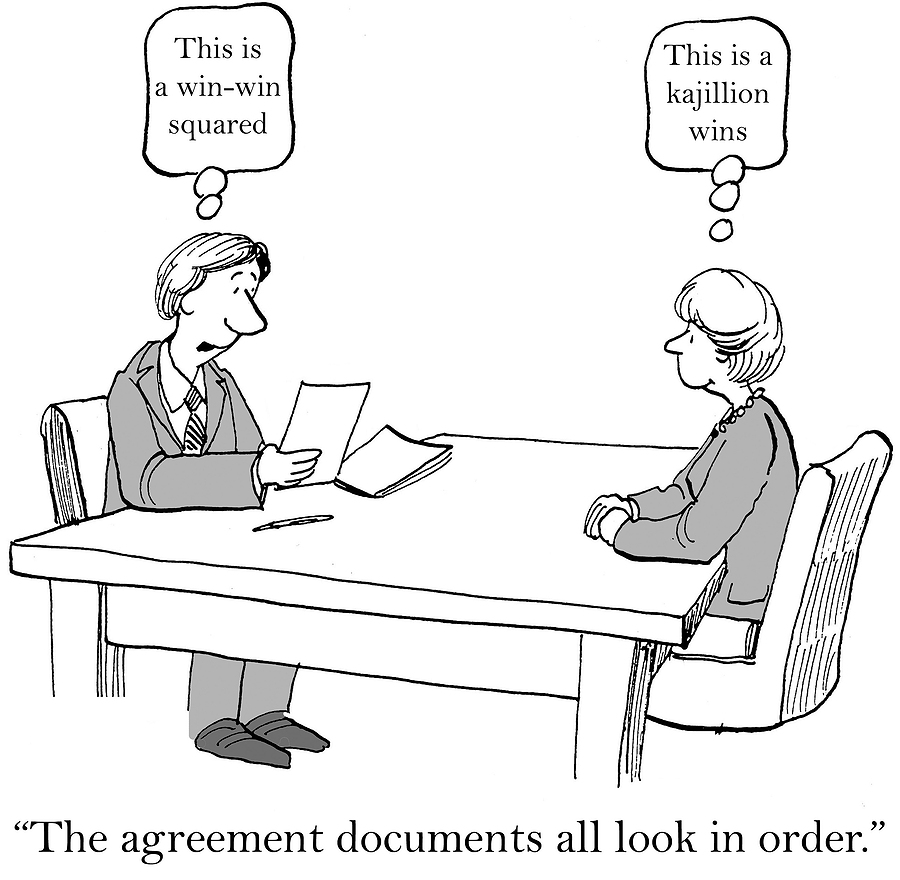I often see a lot of confusion from folks about how attorneys can participate in mediation. There seems to be a false understanding that attorneys aren’t allowed into the hallowed halls of alternative dispute resolution. However, nothing can be further from the truth!
Attorneys can serve a very important role in mediation processes. Let’s take a look at some important points for lawyers to consider when approaching mediation.
Attorney ≠ Litigation
Attorney participation is not an automatic ticket to the courtroom or adversarial litigation. Rather, a lawyer’s involvement simply means people are looking to get legal advice.
Remember, a mediator, even if they are an attorney, can only provide legal information. This can include describing the law, review of statutes, explanations of court processes, etc. A mediator is ethically barred from providing legal advice (i.e., telling a party what they should or should not do). That advice piece should come from a client’s independent lawyer.
As a result, we strongly recommend clients engage independent counsel as part of their mediation. This is not because we love adversarial processes. Rather, it’s an important step to ensure clients make informed choices.
Attorneys don’t have to come to the mediation table
With most of our mediations, the lawyers don’t come to the negotiations. Rather, the parties meet with the mediator and work through a facilitated three-way negotiation.
The mediator encourages parties to consult with attorneys during the process to make sure they understand their legal rights. Crucially, clients have the right to review any documents prepared by the mediator with their attorneys prior to signing. This review process helps make mediation safe. No one will be expected to make any decisions without the chance to consult with an independent attorney.
However, if it’s helpful, attorneys can be invited to the negotiations.
Although most of our clients negotiate without their attorneys present, some invite their lawyers to the table. Sometimes when there are difficult or complex issues, it makes a lot of sense to invite attorneys into the mediation sessions. This gives clients the ability to ask questions and receive legal advice in real-time during the meeting. Often, this can be more cost-effective and more efficient.
A lawyer advising a client during mediation need not be the “attorney of record” at court.
Some attorneys struggle with this. To be clear, an attorney need not be the “attorney of record” with the court to advise a party during mediation. Most attorneys simply have a limited hourly engagement without the typical large retainers we see in litigation. This way the clients will only pay for the services and advice they need when they need them.
At Weber Dispute Resolution, we share a cheat sheet with our clients to help them when engaging with counsel. Download it free by clicking here: Working with Advising Attorneys Information Sheet.
Attorneys can use mediation as a tool in litigation.
The smart attorney will use mediation during litigation to help narrow issues and to provide better service to their client. At Weber Dispute Resolution, we provide numerous services that can be helpful to attorneys in difficult cases. Mediators can facilitate a Neutral Settlement Conference, which can be held in lieu of a Mandatory Settlement Conference (MSC) prior to trial. Additionally, mediators can assist with settling conflicts for temporary orders such as interim motions and requests for orders. Further, litigating attorneys can use mediators to help facilitate the resolution of discovery disputes and other pre-trial concerns.
Basically, a good mediator can assist clients and attorneys at any stage of adversarial litigation as a way to reduce costs and increase efficiency. For example, settling a discovery dispute or interim issue with a mediator without having to wait for a costly and contentious hearing at the courthouse is simply good advocacy and can increase client satisfaction.
Research shows that client satisfaction increases when cases are settled through mediation rather than litigated at court.
Litigation attorneys should consider using mediators as a tool in large part because it can increase client satisfaction. There is a good amount of research, which shows this to be true. When lawyers use mediation, parties consistently report higher satisfaction.
What do higher levels of client satisfaction mean to the attorney? Simple! Happy clients don’t sue their attorneys. Satisfied parties refer repeat business. So, it’s just good business for lawyers to encourage mediation!

Mediation Increases Client Satisfaction
Check out these links for more information about how mediation can improve client satisfaction:
- The Attorney, the Client and the Mediator
- Party Satisfaction with Mediation
- Role of Attorneys in Mediation Process
- How Can the Legal Profession Increase Party Satisfaction with the Mediation Process (Whether or Not a Settlement Was Reached?)
- A “Party Satisfaction” Perspective on a Comprehensive Mediation Statute
Working with Advising Attorneys Information Sheet
Our handy cheat sheet is great for clients looking for an advising attorney to help with mediation.
Lawyers: Schedule a Private Settlement Conference at Weber Dispute Resolution

We offer Private Settlement Conferences to help lawyers settle more cases.
Let us help you settle the cases that CAN settle, so you can focus your time preparing for the trials that WON’T settle.

